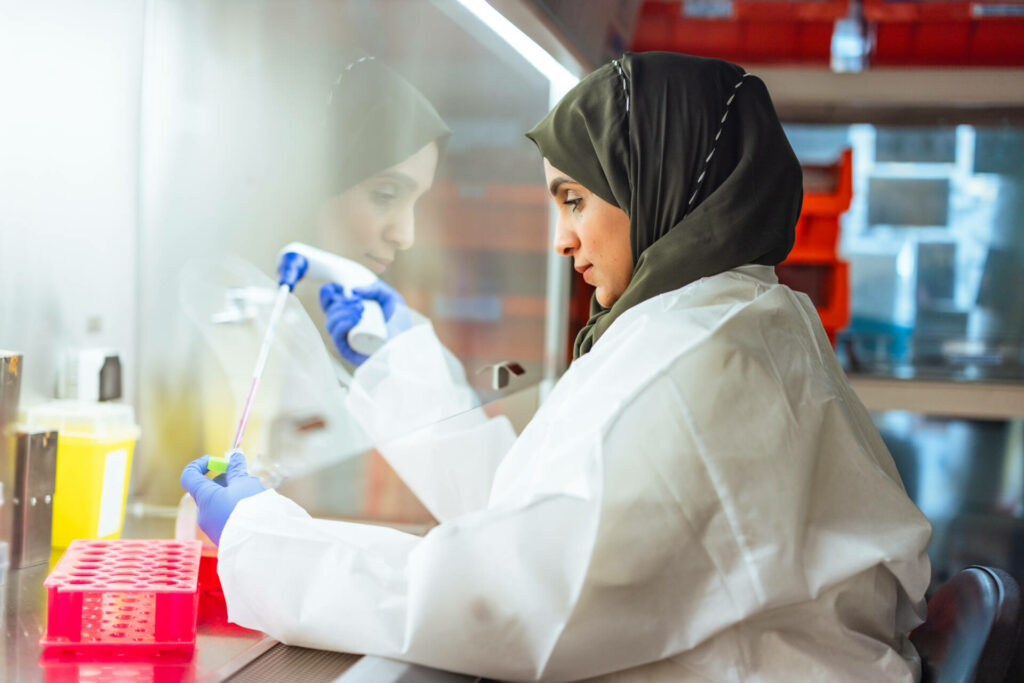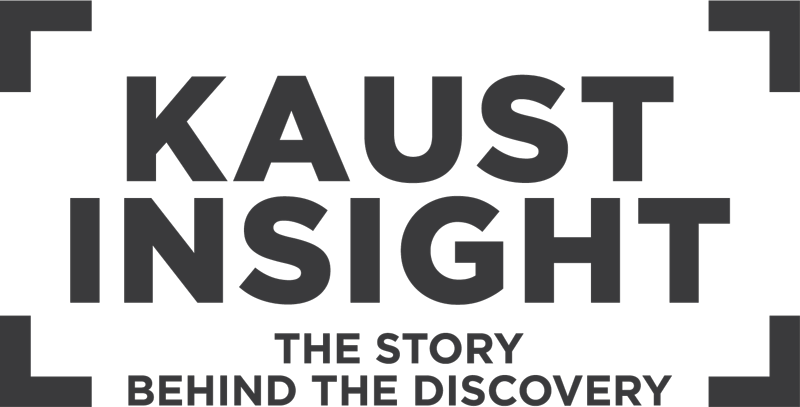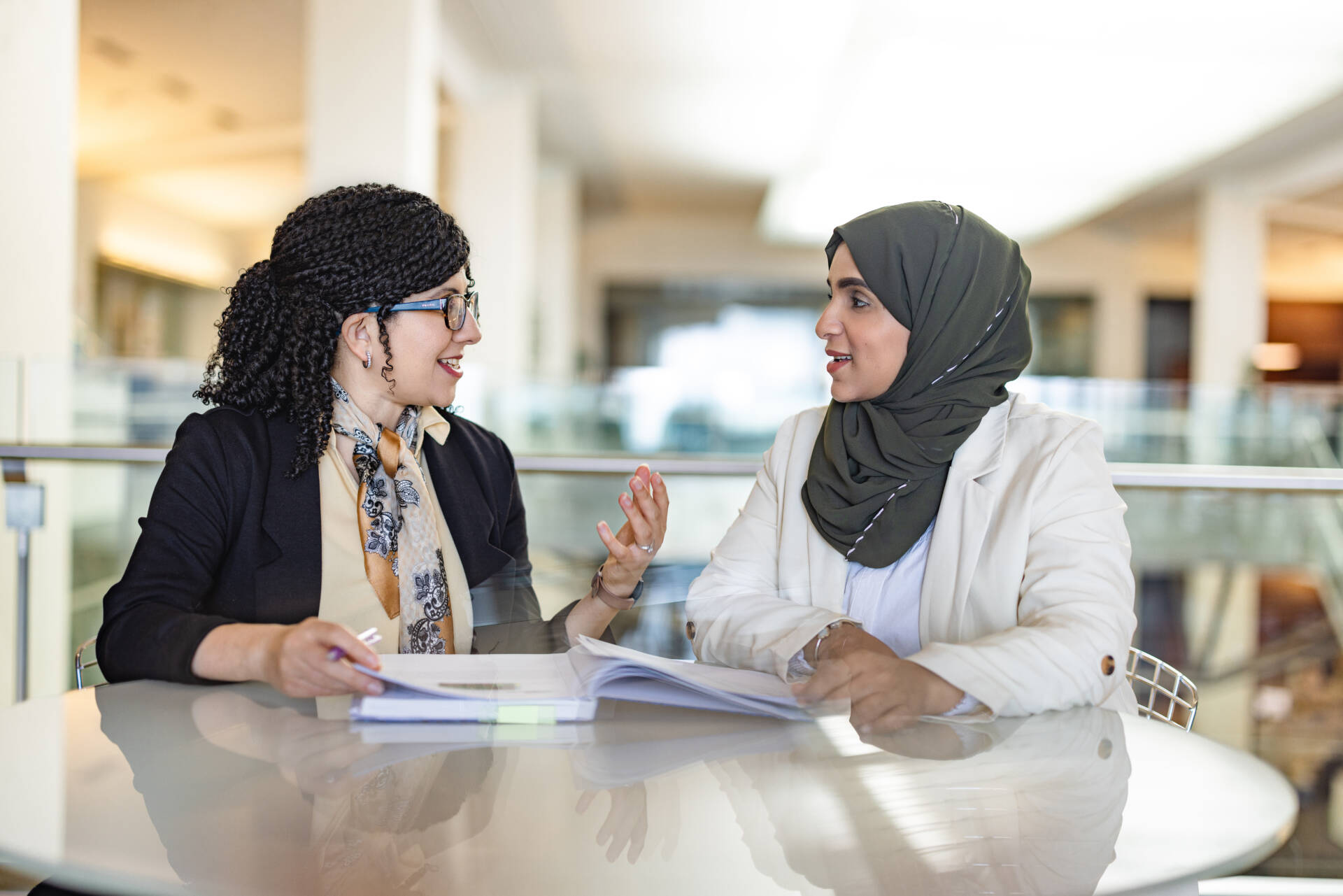Asma Al-Amoodi always knew she wanted to become a scientist and work in a laboratory, but only when she came upon the work of Jasmeen Merzaban at KAUST did the idea begin to crystalize into a tangible goal.
“I heard about KAUST while studying at King Abdulaziz University in Jeddah for my bachelor’s degree in medical laboratory technology,” Al-Amoodi recalls. “Looking through the KAUST website, Jasmeen’s research really grabbed my attention. I wanted to be a part of her team from my first day at KAUST.”
Merzaban studies regenerative cells called stem cells, focusing on how they home to specific sites in the body to promote healing. “I wanted to work on stem cells because they hold great therapeutic promise for many disorders,” Al-Amoodi says.

Al-Amoodi initially enrolled in 2015 for a master’s degree in bioscience at KAUST. She then stayed on in Merzaban’s lab for her Ph.D. studies. “I am interested in hematopoietic stem cells as a treatment option for leukemic patients,” she says.
Leukemia, a common form of blood cancer in Saudi Arabia, is treated by chemotherapy or radiotherapy to eliminate the diseased cells, followed by a transplant of bone marrow stem cells from a healthy donor. These stem cells are the “mother” cells from which the body produces blood cells. “The transplanted cells replenish the body with healthy blood cells,” Al-Amoodi says.
One challenge with hematopoietic stem cell therapy is that, after transplantation, not all cells home to the bone marrow. “In my research, I try to improve hematopoietic stem cells migration and engraftment after they are injected into the patient,” Al-Amoodi says.
After developing methods to improve hematopoietic stem cell homing and engraftment in mice, Al-Amoodi spent the second part of her Ph.D. applying the concept to human hematopoietic stem cells, as a step toward human clinical trials.
“Asma’s passion for characterizing hematopoietic stem cells and for finding ways to enhance their delivery to the bone marrow has contributed immensely to the sophistication of the research emerging from our lab,” Merzaban says.
“Looking back at the time since Asma joined my lab as an enthusiastic master’s student, I’ve been so impressed by her consistent curiosity and unwavering desire to keep learning and growing,” Merzaban adds. “It has led to her being recognized globally, and during her time at KAUST, she has won several awards, including the prestigious MIT Technology Review Innovators Under 35 award for the MENA region.”
“I’ve been so impressed by her consistent curiosity and unwavering desire to keep learning and growing.”
While initially Al-Amoodi was drawn to the research, it has been Merzaban’s mentoring that has kept her with the group. “Professor Merzaban lab management, scientific communication and ability to see the broader picture have always inspired me,” Al-Amoodi says. “And as a mother myself, seeing her strike a balance between family life and academic life makes her a role model for me,” she says. “When I look to Jasmeen and other female scientist role models here in KAUST, I know it’s possible to excel at both science and motherhood.”
“Mentorship has always been central to how I work because I believe that it is only through a leader’s genuine interest, engagement and care in a student’s development that they are able to realize their potential,” Merzaban says.
“Seeing herself reflected in an experienced professional in the field of science, which is still male denominated, is very important because it allows a young female scientist to visualize her own success and, in so doing, actualize her own potential over time.”
With Merzaban’s guidance, the career Al-Amoodi envisions for herself is now sharper than ever. “I want to work in relapsing cancer: to understand why relapse happens after treatment in some patients and how we can prevent it,” she says. “I’m now looking for a postdoc position abroad. After that, I want to come back to my hometown, Jeddah, to build my own lab.”

